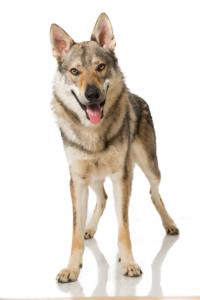How to Train a Czechoslovakian Wolfdog?
1. When training your Czechoslovakian Wolfdog, providing praise and favorable reinforcement is really helpful and essential Czechoslovakian Wolfdog puppy.
2. In no scenarios, must you shout at your young puppy or punish them for not listening — positive reinforcement is the very best approach to train your Czechoslovakian Wolfdog.
3. When it pertains to praising your Czechoslovakian Wolfdog, instead of patting them on top of their head or back, give them a pat under their chin or chest as it is more caring for them.
4. Training your Czechoslovakian Wolfdog should not be carried out in long sessions. It is more efficient to train them with frequent but brief sessions throughout the day. It’s suggested to train a Czechoslovakian Wolfdog 3-5 times a day for 5-minute sessions. This ensures you are getting their complete attention.
5. When your young puppy has actually effectively done what you asked them to, reward them with a pet dog reward.
6. A huge mistake that a great deal of Czechoslovakian Wolfdog owners make is letting their puppy do things at a young age that they would not desire them to do later (e.g. laying on furnishings). Don’t let them get into this routine otherwise it will be extremely challenging to change your dog’s behaviour later on.
7. Pup training for a Czechoslovakian Wolfdog should begin at 8 weeks old and they usually run at full knowing capability between 8-12 weeks.
8. Your intonation is your greatest training help – when applauding use a happy tone, and a firm tone when saying “No” (but make certain you’re not shouting).
How to Potty Train a Czechoslovakian Wolfdog puppy?
One of the first things you will have to do when bringing home a new Czechoslovakian Wolfdog, is potty training them. It will take a while and will be tough however with our guide on how to potty train a Czechoslovakian Wolfdog puppy, you will arrive quicker than later.
1. Take your Czechoslovakian Wolfdog pup out routinely: To start, take your Czechoslovakian Wolfdog outside every hour that you can and wait there with them for a couple of minutes to see if they need to go. This will limit the possibilities of them going to the toilet inside and teach them where they need to be doing it. When they do properly go to the toilet outside, make sure you applaud them or perhaps give them deals with. In time, they will understand they need to go to the toilet outside. As they are improving, extend the amount of time between going outside.
2. Learn the indications your Czechoslovakian Wolfdog has to go: Common indications that Czechoslovakian Wolfdogs and all dogs reveal when needing to go the toilet consist of: smelling the floor, squatting, circling, barking, and waiting at the door that leads outside.
3. Take your Czechoslovakian Wolfdog to the very same spot whenever: It’s important that you constantly try to take your Czechoslovakian Wolfdog When taking them to go to the toilet, young puppy to the same area through the exact same exit. This will teach them to only enter the exact same spot and will make cleaning up after them much easier for you. Also, the exit needs to be somewhere quickly visible so you understand when they are heading towards there or waiting there that they need to go to the toilet.
How to Train a Czechoslovakian Wolfdog Not to Bite?
The Center for Disease Control states that pet dogs bite roughly 4.5 million individuals each year. This high number may seem a bit stressing, but our guide on how to train a Czechoslovakian Wolfdog not to bite will help guarantee your Czechoslovakian Wolfdog does not contribute to this.
1. Socialize your Czechoslovakian Wolfdog at a young age: The best thing you can do for your Czechoslovakian Wolfdog is introducing them to a lot of brand-new people, locations, and situations as you can. A well-socialized Czechoslovakian Wolfdog puppy is much less likely to be nervous in new scenarios, and will then be less likely to be aggressive.
2. Sterilize your Czechoslovakian Wolfdog: There is some evidence that states that neutered pets tend to be less aggressive and less most likely to bite.
3. Participate in obedience training: An obedient Czechoslovakian Wolfdog is a lot much easier to manage. It is less likely to be aggressive and bite if you can control your canine’s behavior.
4. Be aware of your Czechoslovakian Wolfdogs body language: It is commonly known that a Czechoslovakian Wolfdog who is scared of having their territory got into has the potential to be aggressive and bite. Habits like raised heckles, bared teeth, and a lowered head are all signs that a Czechoslovakian Wolfdog is uncomfortable. Attempt to comfort them and remove them from this circumstance when its safe if you observe your Czechoslovakian Wolfdog dog showing this type of body language.
How to Train a Czechoslovakian Wolfdog to Stop Barking?
Getting your Czechoslovakian Wolfdog to stop barking takes time, practice, and consistency. It doesn’t occur overnight but our pointers on how to train a Czechoslovakian Wolfdog to stop barking will be extremely valuable.
1. Do not scream back: Screaming will just get your Czechoslovakian Wolfdog to bark a lot more because they believe you are joining in. Speak securely and calmy, however do not shout.
2. Teach your Czechoslovakian Wolfdog to understand the word “Quiet”: Whenever your Czechoslovakian Wolfdog is barking, say “Quiet” in a firm and calm voice. Wait for them to stop barking and when they do applaud them with a reward.
3. An exhausted Czechoslovakian Wolfdog is a quiet Czechoslovakian Wolfdog: If your Czechoslovakian Wolfdog barks a lot on their own, take them out for more regular workout or play. They are less likely to bark when tired.










